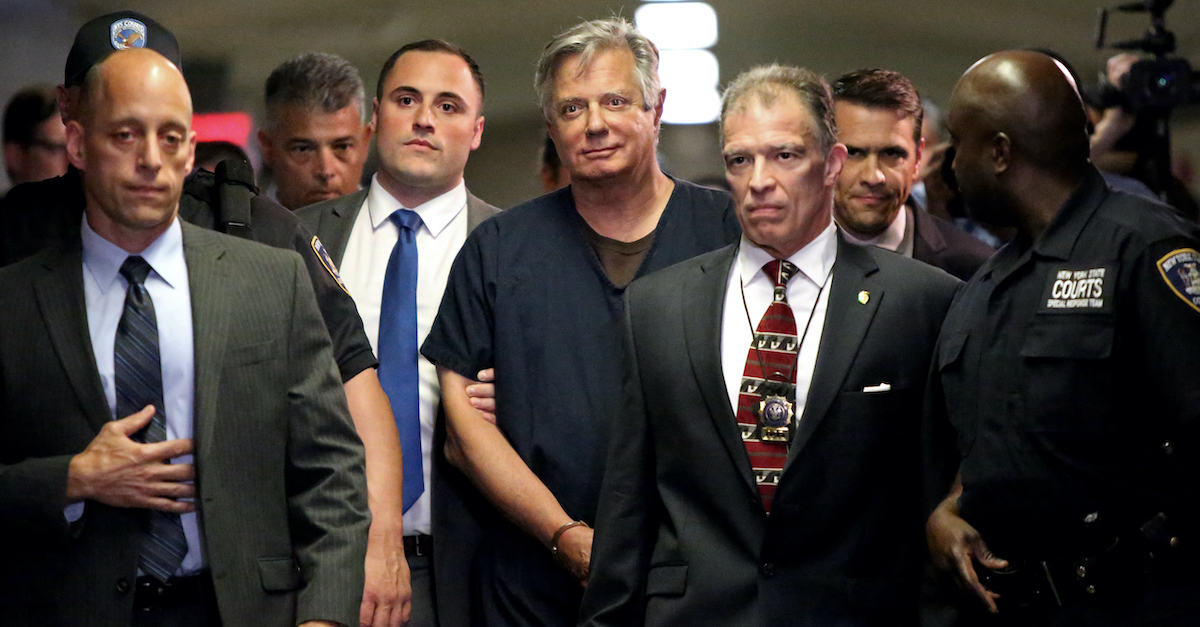
New York highest appellate court rejected Manhattan District Attorney Cy Vance’s effort to bring criminal charges against Paul Manafort, reasoning that the former Trump campaign chairman’s recent presidential pardon in a related federal case barred the state from prosecuting related crimes.
The brief one-page order from Chief Judge of the New York State Court of Appeals Janet DiFiore upheld a lower court ruling that similarly denied Vance’s application to re-argue the case that was dismissed on double jeopardy grounds in Dec. 2019. The order was signed last week and provided to NBC News by Manafort’s attorney Todd Blanche.
After Manafort pleaded guilty to a series of federal fraud and tax crimes in connection with former special counsel Robert Mueller’s investigation into Russian interference in the 2016 election, Vance’s office announced a 16-count indictment stemming from an alleged mortgage fraud scheme. The state charges were clearly brought to protect against the likelihood that then-President Donald Trump would pardon Manafort of his federal crimes, as he did just before leaving office.
Manafort would have been facing eight to 25 years had the charges been allowed to stand and resulted in conviction.
“As we have said from the time the District Attorney announced charges against Mr. Manafort, this is a case that should never have been brought because the dismissed indictment is a clear violation of New York law. As the trial court held, and the Appellate Division affirmed, the People’s arguments ‘fall far short’ of triggering an exception to double jeopardy that would justify this prosecution,” Blanche said in a statement to NBC. “We are pleased that the New York Court of Appeals saw no reason to give leave to the District Attorney to appeal the well-reasoned prior decision dismissing the indictment and the Appellate Division’s opinion affirming the same.”
According to a Monday report from the New York Times, Vance’s investigation into former presidential advisor Steve Bannon, who also received a pardon from Trump, is unlikely to be thwarted on similar double jeopardy grounds because Bannon’s clemency was granted before he had been tried or convicted of any federal crimes. Bannon and several other men were accused of defrauding investors who crowdfunded his private border wall venture. He pleaded not guilty before being pardoned.
“The basis for the prosecution being improper doesn’t in any way apply to Mr. Bannon as far as I can tell,” Blanche told the Times.
New York passed S4572, a law aimed at closing the so-called “double jeopardy loophole.” The bill was signed into law in Oct. 2019, which was several months after Vance brought a state case against Manafort.
Titled “Previous Prosecution: Presidential Reprieve, Pardon, or Other Form of Clemency,” the New York law permits prosecutors to bring charges against “a person [who] has been granted a reprieve, pardon or other form of clemency for an offense,” if authorities can show a potential defendant has a clear conflict of interest with the president.
Examples of such conflicts include: a current or former staff member; a current or former political appointee; or a family member related to the president by blood or by marriage “within the sixth degree.”
“With the President all but pledging to corruptly abuse his pardon power to allow friends and associates off the hook, it is crucial that we have closed the Double Jeopardy loophole and preserved the rule of law in New York,” New York State Senator Todd Kaminsky said in a press release at the time of the law’s passage.
Read Judge DiFiore’s order below:
NYS.court.of.Appeals.manafortpdf by Law&Crime on Scribd
[image via Yana Paskova/Getty Images]